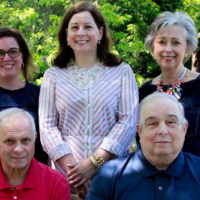When the Brown v. Board of Education of Topeka ruling was handed down in 1954, the practice of “separate but equal” public schooling became unlawful, and the process of desegregating schools commenced. I don’t recall exactly how my own teachers taught me about this landmark decision. However, I’m certain that I didn’t learn about the debilitating impact of the decision on Black teachers and principals, thousands of whom lost their jobs when white superintendents refused to hire Black teachers to teach white students, even when they had higher education credentials and more classroom experience than their white counterparts. To many white school administrators in the ‘50s, ‘60’s, and even ‘70s, hiring a Black teacher to teach white students in a newly integrated school was unthinkable.
For those of us working and living in Chicago, this displacement of Black educators may ring contemporary bells as well. In the early 2000s, so-called “turn-around” schools led to the firing of hundreds of Black teachers and school personnel, again causing huge economic and emotional turmoil to, primarily, Black teachers and their families. Recently, a civil rights suit has resulted in a settlement of $9.25 million for teachers and staff who lost their jobs during these mass layoffs.
As Mark Twain purportedly said, “History doesn’t repeat itself, but it often rhymes.” Though the events I’ve described took place over 50 years apart, the consequences to the livelihoods of Black middle-class professionals are eerily similar. If one didn’t know about the preceding event, it might be easier to rationalize contemporary events, to chalk it up to an unfortunate situation at one point in time. But when we know the history, we can see the patterns.
In our work at the Foundation, we are constantly striving to understand multiple truths that surround complex social issues, like education, employment, and family well-being. In doing so, we hope to actively fight against those patterns that perpetuate the same rhymes of inequity and discrimination. We are human, so we won’t always get it right, but we will keep listening, learning, and looking for rhymes.
—Contributed by Molly Truglia, Program Associate


 About Us
About Us Programs
Programs